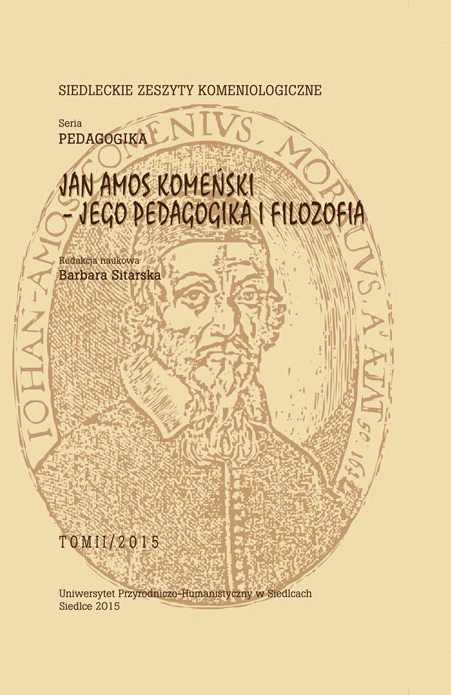EDUKACJA DO DZIAŁAŃ TWÓRCZYCH OSÓB Z NIEPEŁNOSPRAWNOŚCIĄ W POGLĄDACH JANA AMOSA KOMEŃSKIEGO
Abstrakt
In the pedagogic conduct, the permanently innovative strengthening of views, also in the area of a planned strategy for educating the disabled for creative activi-ties, creates an indisputable opportunity of a perspective for existence in the area of their free participation, and consequently revealing a significant shift towards the growth of the meaning of the otherness of charges for the process of exploring the otherness of charges, and on this basis noticing potential possibilities, talents, uncovered strong points. It can be strongly stated here there is a relationship of Komeński’s views in the cohesion of the symp-tom of formation of the foundations of a new look for a new European cultural space which can provide a chance for a talented disabled individual to feel fulfilled. Any suitable and indispensable interpretation of views for changes in this area will undoubtedly stre-ngthen this process. The interpretation accepted in the study, which is simultaneously a proposal to include creative disabled individuals in education for creative activities, in the aspect of J.A. Komeński’s visionary pedagogic views, provides, in constructing the-oretical and practical proposals of interpretation of the social and cultural existence form, depending on proposed solutions to this problem, an invaluable pedagogic and social value, both in categories of didactic activities and educational and socializing ones. The use-fulness of taking into account the legitimacy of creating educational activities for the disabled and Komeński’s still relevant views is supported by such premises as: faith in the power of upbringing and education, a perspective of the objectivism of conduct; openness to in-novativeness and originality; the openness of innovativeness to the object of creation, unlimi-ted in its permanent development, according to an individually available scheme shared and implemented by a team of educators, animators and charges; admittance of the freedom to provide diversity, limited by objective conditions and subjectively created, as well as an opportunity to form individual, original visions of educational activities for creative activi-ties without any territorial limitation; the relevance of the ethical and moral aspect of wor-king with charges and rational acceptance of specified psychical and mental constructions, observance of virtues; inspiration towards the infinity of perfecting and completing, tole-rance and harmonious coexistence between people, self-cognition under the influence of life experiences, self-development, education without limits; the generality of education for the entire human race without any exceptions, the uniformity of education.




